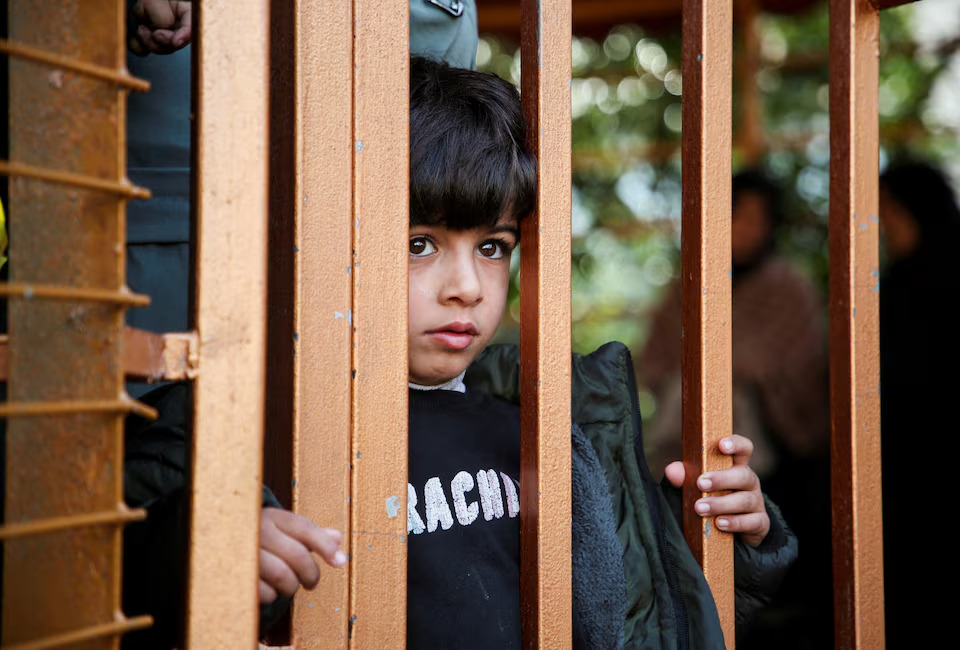(Reuters) – Israel on Saturday approved a ceasefire deal with Palestinian militant group Hamas that involves release of hostages in the Gaza Strip, and Israeli forces struck in the enclave before the agreement’s scheduled start on Sunday.
The agreement is set to halt a 15-month-old war between Israel and Gaza’s rulers Hamas that has decimated the Gaza Strip, killed tens of thousands of Palestinians and destabilised the Middle East.
The war was triggered by Hamas’ Oct. 7, 2023 attack on southern Israel in which 1,200 people were killed and more than 250 taken hostage, according to Israeli tallies. More than 400 Israeli soldiers have been killed in combat in Gaza since.


Early on Saturday, after meeting for more than six hours, the Israeli cabinet ratified the ceasefire deal which is meant to stop fighting and see the release of dozens of hostages held by Hamas in return for scores of Palestinians jailed in Israel.
“The Government has approved the framework for the return of the hostages. The framework for the hostages’ release will come into effect on Sunday,” Netanyahu’s office said in a brief statement.

In Gaza, Israeli warplanes have kept up attacks since the deal was agreed, and pounded the territory on Saturday.
Israeli tanks shelled the Zeitoun neighbourhood of Gaza City and airstrikes hit central and southern Gaza, residents said. Medics in Gaza said five people were killed in an airstrike that hit a tent in the Mawasi area, west of the city of Khan Younis.
The Israeli military said that since Friday it had struck Hamas and Islamic Jihad fighters who were among 50 “terror targets” it hit across the Gaza Strip.
At least 123 Palestinians have been killed in Israeli strikes since the ceasefire deal was announced on Wednesday, the Palestinian Civil Emergency Service said.
Nearly 47,000 have been killed since the start of the war, according to the Palestinian health ministry.

FIRST HOSTAGES TO BE FREED SUNDAY
Outside Gaza, the conflict caused shockwaves across the region, triggering a war with the Lebanese Hezbollah movement and bringing Israel into direct conflict with Iran for the first time.
The Yemeni Houthis, also backed by Iran, have since the start of the Gaza war carried out hundreds of attacks on what they say are Israeli-linked cargo ships travelling via the Red Sea and fired missiles at Israel, which has retaliated with airstrikes in Yemen.
At least two missiles were fired from Yemen on Saturday, the Israeli military said, setting off air raid sirens in Tel Aviv, Jerusalem and the southern resort town of Eilat before they were intercepted.
In Tel Aviv, a Palestinian man stabbed and wounded one person, police said, before he was shot by a passerby. His condition was not immediately clear.
The Gaza ceasefire will come into effect at 0630 GMT on Sunday, the Qatari foreign ministry spokesman posted on X. The White House expects three female hostages to be released to Israel in the afternoon through the Red Cross.
Under the deal, the three-stage ceasefire starts with an initial six-week phase when hostages held by Hamas will be exchanged for prisoners and detainees jailed in Israel.
Thirty-three of the 98 remaining Israeli hostages, including women, children, men over 50 and ill and wounded captives, are to be freed in this phase. In return, Israel will release almost 2,000 Palestinians from its jails.
They include 737 male, female and teen-aged prisoners, some of whom are members of militant groups convicted of attacks that killed dozens of Israelis, as well as hundreds of Palestinians from Gaza in detention since the start of the war.
Israel’s Justice Ministry published their details early on Saturday, along with the ceasefire agreement, which said 30 Palestinian prisoners would be released for each female hostage on Sunday.
After Sunday’s hostage release, lead U.S. negotiator Brett McGurk said, the accord calls for four more female hostages to be freed after seven days, followed by the release of three further hostages every seven days thereafter.
With the accord opposed by some Israeli cabinet hard-liners, media reports said 24 ministers in Netanyahu’s coalition government voted in favour of the deal while eight opposed it.
The opponents said the ceasefire agreement represented a capitulation to Hamas. National Security Minister Itamar Ben-Gvir threatened to resign if it was approved and urged other ministers to vote against it. However, he said he would not bring down the government.
Finance Minister Bezalel Smotrich, also threatened to quit the government if it does not go back to war to defeat Hamas after the first six-week phase of the ceasefire.

